Hyundai reveals its plans for combating climate change
This popular brand has developed a revolutionary plan to tackle one of the biggest issues facing the world and we won't have to wait long for the results.
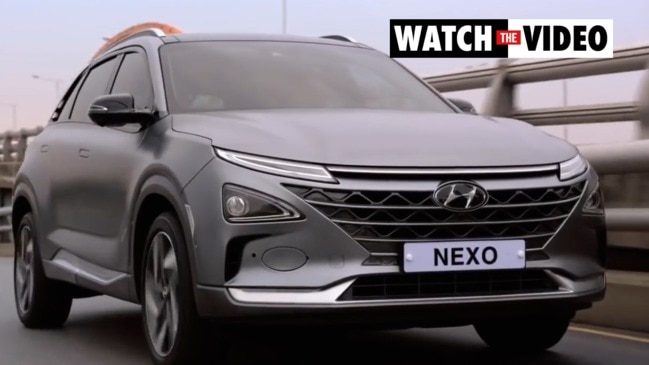
Hydrogen-powered fuel-cell vehicles could be as cheap as battery electric cars by the end of the decade, according to the Hyundai Group.
The group – which includes the Hyundai and Kia brands – is planning to introduce a new-generation fuel cell stack in 2023 that will be cheaper and smaller but deliver higher outputs and better durability.
Two versions of the third-generation stack will debut in the group’s Nexo fuel-cell SUV. The smaller 100kW stack is 30 per cent smaller than the current unit, while a larger 200kW version has been designed for commercial vehicle applications. It is a similar size to the Nexo’s current stack, but produces twice as much power.
Hyundai predicts the estimated life of the stack will increase from 160,000km to 500,000km, while the price will be 50 per cent lower.
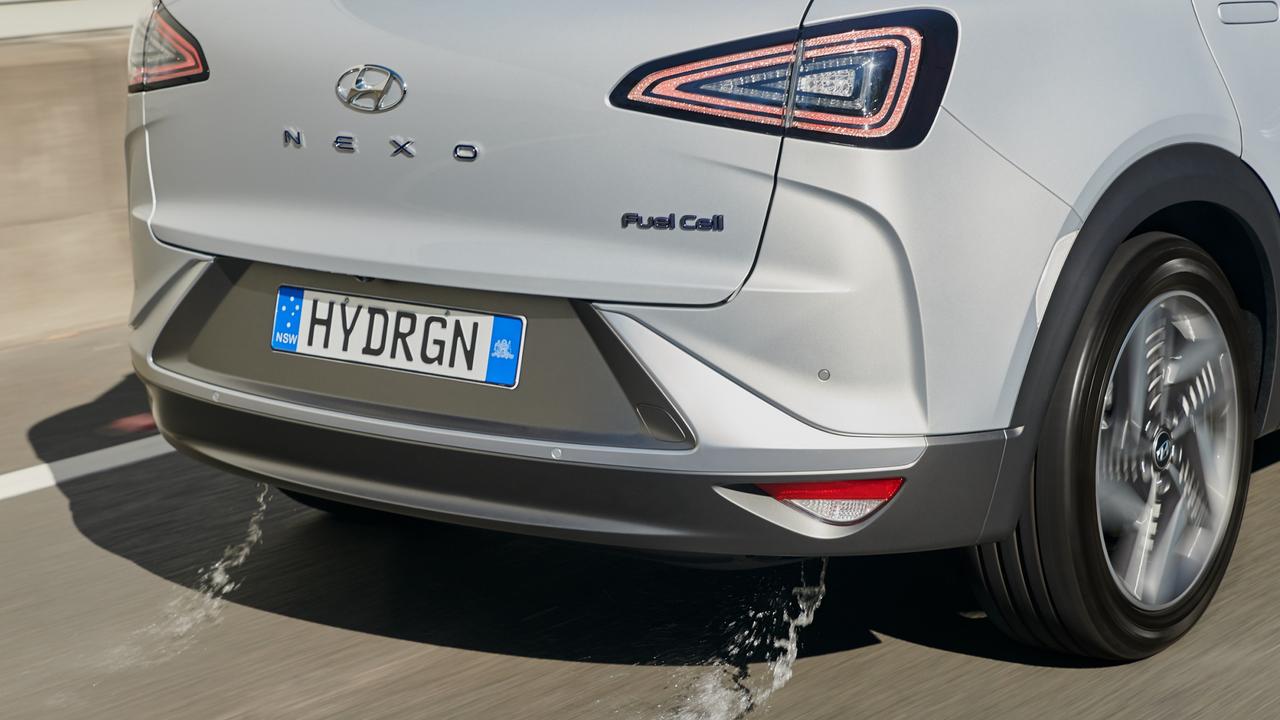
Initially, the company plans to focus on trucks, utes and vans. It aims to apply hydrogen power to every one of its commercial vehicles by 2028.
Hydrogen fuel cell vehicles work by converting hydrogen into electricity that powers the electric motor. The only tailpipe emission is water.
Unlike battery-powered electric vehicles, hydrogen fuel-cell vehicles don’t need large batteries that require huge amounts of raw and expensive materials.
Fuel-cell vehicles can also be refuelled relatively quickly and have a driving range similar to petrol and diesel vehicles.
Hyundai currently has a fleet of 45 of its Xcient hydrogen-powered trucks working in Switzerland that travel about 210,000km a month saving more than 130 tonnes of CO2 in the process.
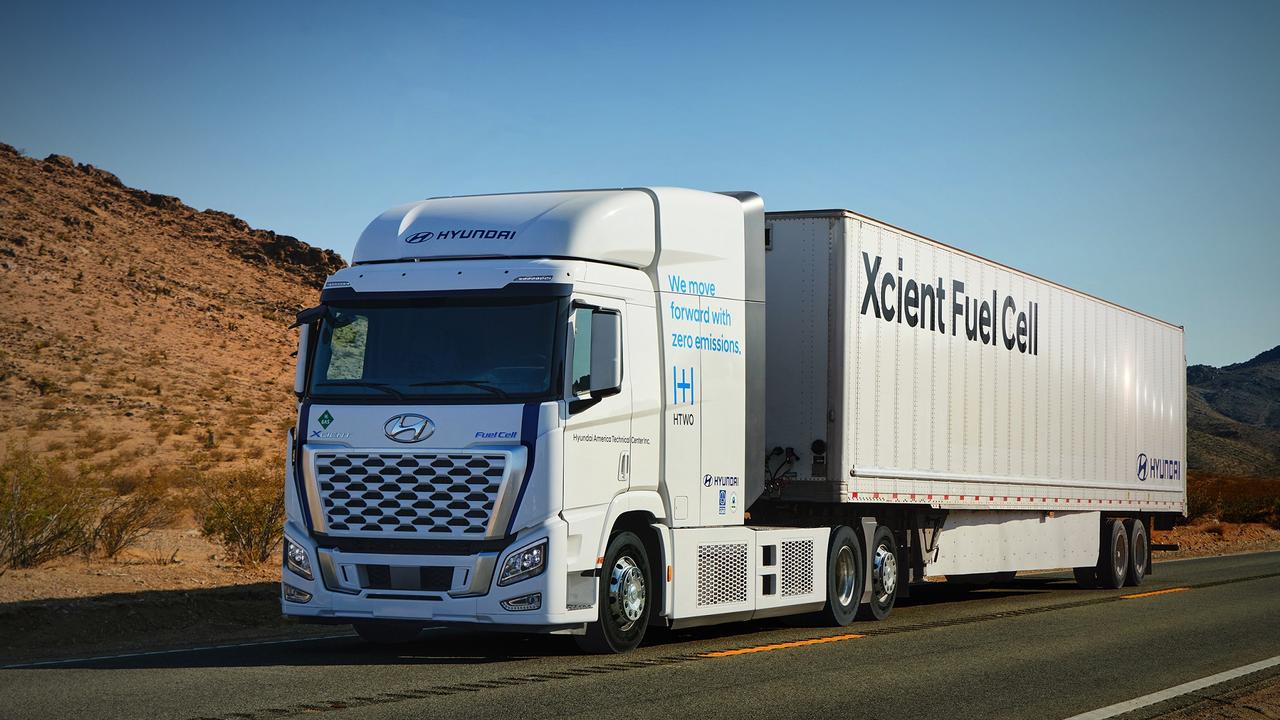
There is even a hydrogen-powered tractor in the works to combat emissions in the agricultural sector.
Hyundai’s head of research and development, Albert Biermann, says the new technology also has excellent potential for performance cars.
The company’s Vision FK performance car has more than 500kW of power, a 0-100km/h time of less than four seconds and more than 600km of driving range.
The concept was developed with the help of electric car maker Rimac, which has financial backing from Hyundai and Porsche.
Hyundai sells the Nexo in several markets around the world.
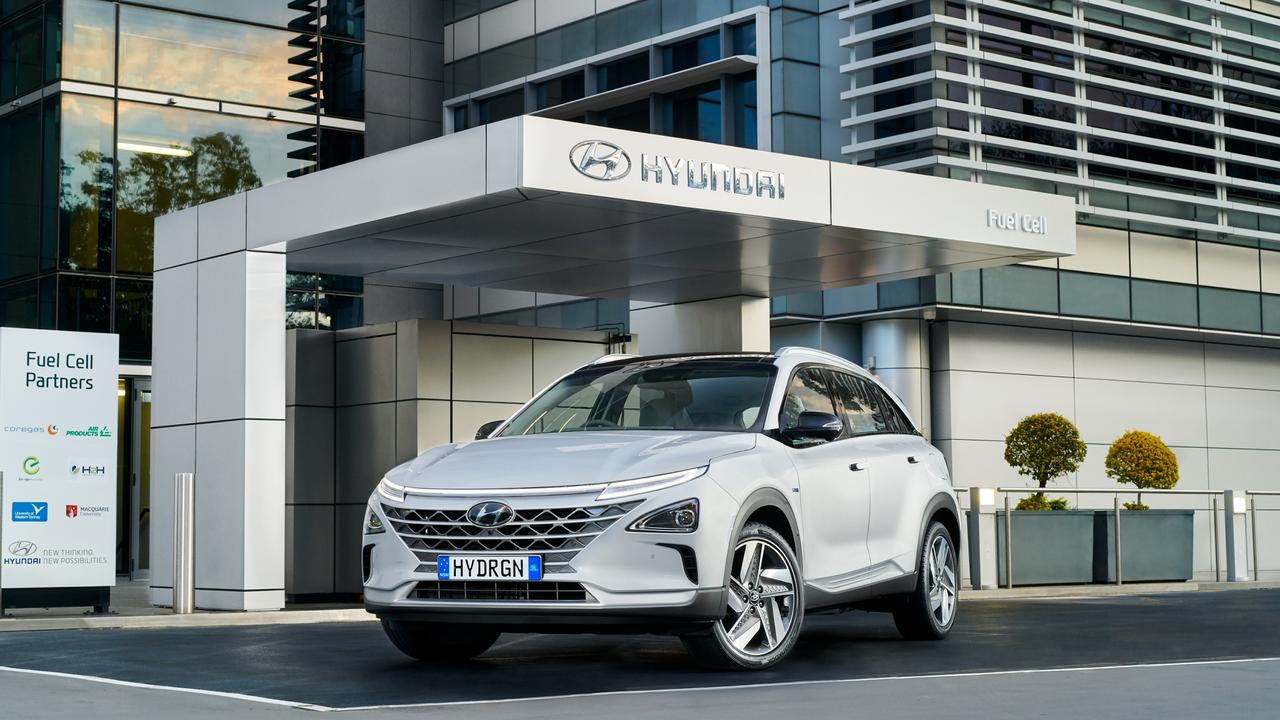
It operates a fleet of Nexo vehicles in Australia, leasing them to companies and governments as part of a trial of the new tech.
Toyota is also running a trial leasing program in Australia for its Mirai sedan.
Hyundai is planning to launch the next-generation Nexo in 2023, which will be followed later that year by a hydrogen-powered Staria people mover.
Price remains the biggest barrier to sales, with experts estimating the Nexo couldn’t be sold to private buyers for less than $100,000.
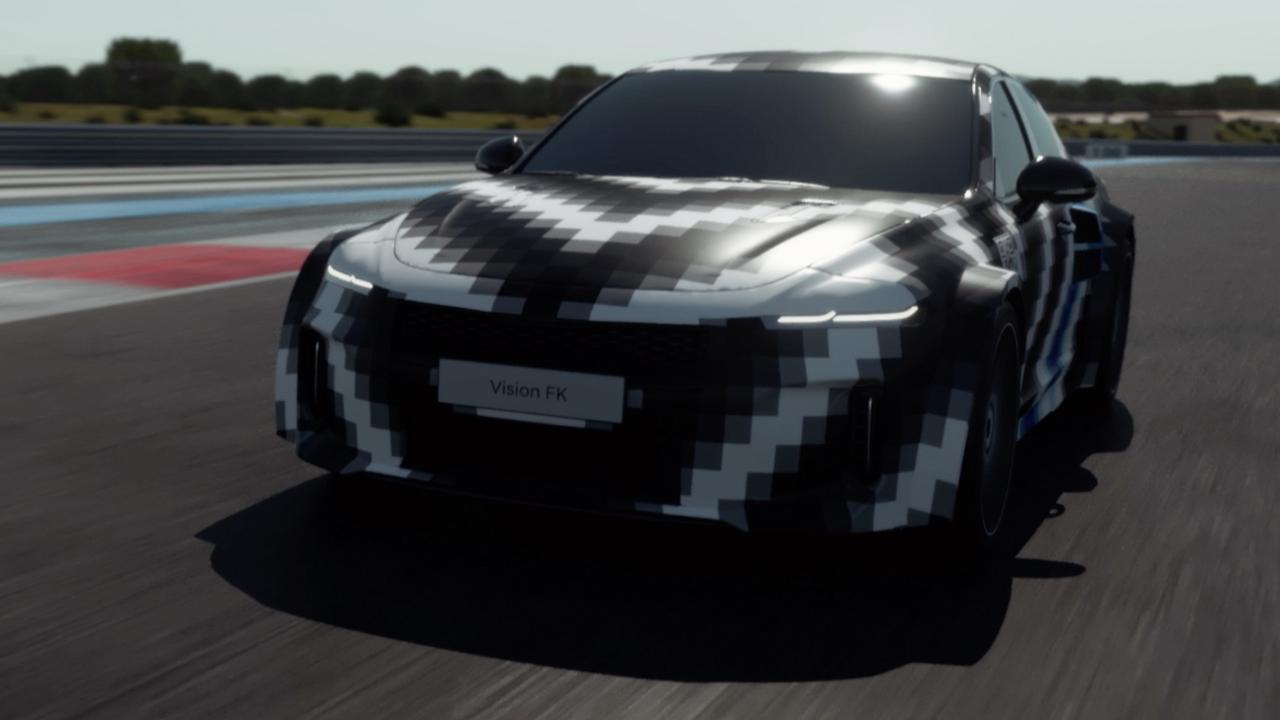
Dr Saehoon Kim, head of Hyundai’s fuel cell division, believes the company will be able to reduce costs significantly over the next decade by developing new processing and production methods.
Dr Kim also said the cost of materials needed to build the fuel cell isn’t really the issue and economies of scale will help drive costs down even further.
Currently only about 15,000 hydrogen fuel cell vehicles are being built every year compared to up to 4 million battery electric vehicles and more than 100 million petrol and diesel vehicles.
Australia is in a strong position to take advantage of the new technology.
The federal government has created a $275m fund to invest in the hydrogen production industry.
Currently Australia only produces “grey hydrogen”, which is created using fossil fuels, but there is massive scope to create green hydrogen using renewable energy.
Dr Kim envisages hydrogen being used as a way to store excess renewable energy created by wind and solar for later use.
Hyundai group chairman, Euisun Chung, says hydrogen could provide a wide spectrum of clean power generation solutions outside of the car industry.
“Hyundai Motor Group’s vision is to apply hydrogen energy in all areas of life and industry such as our homes, workplaces and factories. The goal is to make hydrogen readily used for everyone, everything, and everywhere,” he says.
Mr Chung believes it could be a powerful weapon in the fight against climate change.
“The degree and frequency of environmental disasters is rising fast and we now face a code red warning for humanity,” he says.




